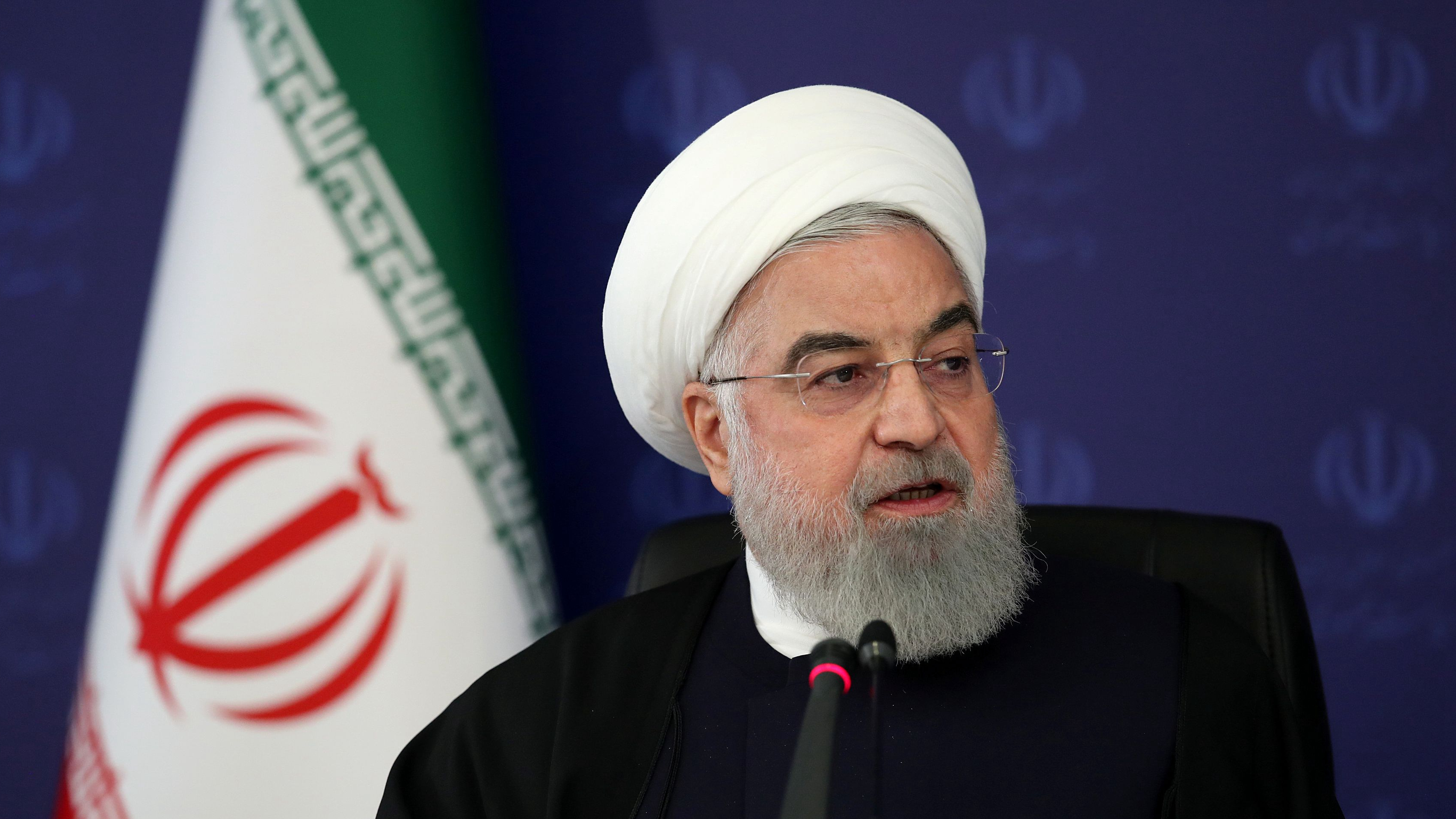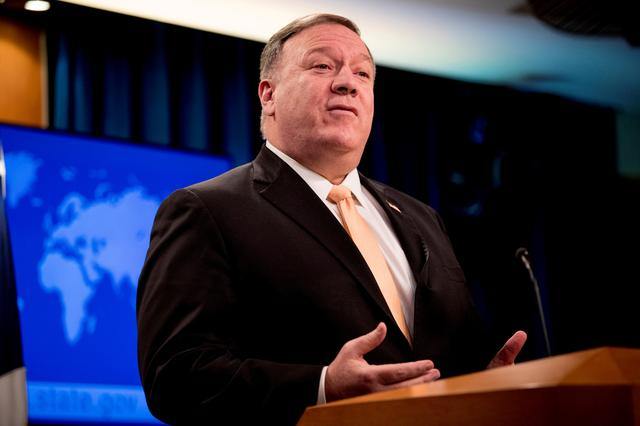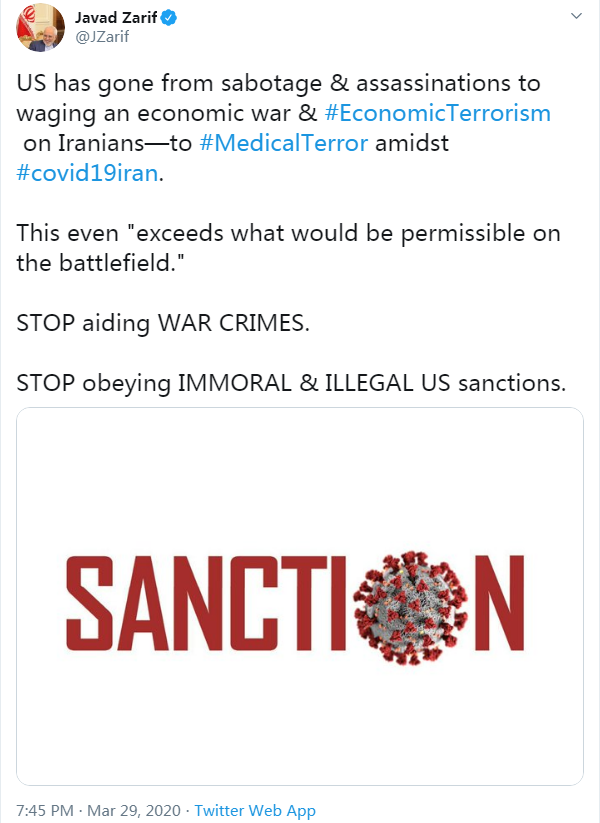
Iranian President Hassan Rouhani speaks during a cabinet meeting, Tehran, Iran, April 1, 2020. /Reuters
Iranian President Hassan Rouhani speaks during a cabinet meeting, Tehran, Iran, April 1, 2020. /Reuters
Iran's president said on Wednesday the United States had missed a historic opportunity to lift sanctions on his country during the coronavirus outbreak, though he said the penalties had not hampered Tehran's fight against the infection.
"It was a great opportunity for Americans to apologize... and to lift the unjust and unfair sanctions on Iran," Hassan Rouhani said in a televised cabinet meeting.
"The sanctions have failed to hamper our efforts to fight against the coronavirus outbreak."
Friction between Tehran and Washington has increased since 2018 when U.S. President Donald Trump pulled the U.S. out of Tehran's 2015 nuclear deal with six nations and reimposed sanctions, crippling its economy.
The remarks come after U.S Secretary of State Mike Pompeo on Tuesday raised the possibility that the U.S. might consider easing sanctions on Iran and other nations to help fight the coronavirus, but gave no concrete sign it plans to do so.
The comments reflected a shift in tone by the U.S. State Department, which has come under withering criticism for its hard line toward sanctions relief even in the face of a call by the UN secretary-general to ease U.S. economic penalties.
Speaking to reporters, Pompeo stressed that humanitarian and medical supplies are exempt from sanctions Washington reimposed on Tehran after President Donald Trump abandoned Iran's 2015 multilateral deal to limit its nuclear program.
However, broader U.S. sanctions deter many firms from humanitarian trade with Iran, one of the nations hardest hit by the coronavirus epidemic.

U.S. Secretary of State Mike Pompeo attends a news conference at the State Department, Washington, D.C., U.S., March 31, 2020. /Reuters
U.S. Secretary of State Mike Pompeo attends a news conference at the State Department, Washington, D.C., U.S., March 31, 2020. /Reuters
Asked if there might come a point at which the United States might reevaluate its stance on easing sanctions, Pompeo told a news conference: "we evaluate all of our policies constantly, so the answer is – would we ever rethink? – Of course."
Asked about such relief on March 20, Pompeo simply said U.S. sanctions do not apply to medical and other humanitarian goods.
The Trump administration is pursuing a "maximum pressure" policy to try to force the Islamic Republic to curb its nuclear, missile and regional activities.
Iran's Foreign Minister Javad Zarif has accused the United States on Twitter of engaging in "medical terror," prompting Pompeo's spokeswoman, Morgan Ortagus, on Monday to copy his tweet and say: "Stop lying. ... It's not the sanctions. It's the regime."

Screenshot of Iranian Foreign Minister Javad Zarif's Twitter post. /CGTN
Screenshot of Iranian Foreign Minister Javad Zarif's Twitter post. /CGTN
A UN human rights expert called on Tuesday for lifting international sanctions against countries ranging from Iran to the Democratic People's Republic of Korea (DPRK) and Venezuela to ensure that food supplies reach hungry populations during the coronavirus pandemic.
Pompeo has been sharply criticized for the administration's stance on Iran sanctions. In the last month, the United States has repeatedly tightened sanctions on Iran, notably seeking to make it harder for it to sell oil abroad.
On Sunday, Washington Post columnist Jackson Diehl published a piece under the headline: "Pompeo's pandemic performance ensures his place among the worst secretaries of state ever."
"Even close U.S. allies, such as Britain, are calling on the Trump administration to ease sanctions that are inhibiting shipment of medical supplies and humanitarian aid to Iran's 80 million people," he wrote. "Yet Pompeo appears to view the epidemic as a handy means to compound 'maximum pressure.' To what end?"
(With input from Reuters)